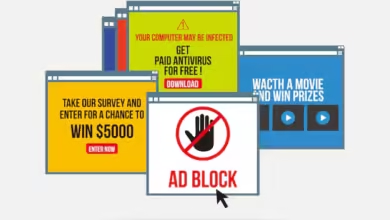30kk mailpass mix.txt [part 156 of 257]
![30kk mailpass mix.txt [part 156 of 257]](https://noticviralweb.com/wp-content/uploads/2024/10/3d-logo-30-thousand-reais-coin-money-from-brazil_314999-2431.avif)
The term “30kk mailpass mix.txt [part 156 of 257]” refers to a specific type of file commonly associated with data dumps, usually containing combinations of email addresses and passwords. These files often surface in underground forums or websites where compromised user data is traded or sold. The “30kk” signifies the number of records or accounts included in the file, which is around 30 million in this case. “Mailpass” typically refers to email-password combinations, while “mix.txt” implies that the file contains various types of data in a text format.
Understanding 30kk Mailpass Mix.txt
A file like “30kk mailpass mix.txt” is usually a large collection of compromised credentials, often obtained through data breaches, phishing attacks, or brute-force attacks on poorly secured systems. The file might be sold or distributed to hackers or cybercriminals who use it for malicious activities such as account takeovers, identity theft, or spam campaigns.
What is in the Mailpass Mix?
- Email Addresses: The file would contain millions of email addresses from various services like Gmail, Yahoo, Outlook, etc.
- Passwords: Alongside the emails, the file includes the corresponding passwords in plaintext or hashed form. Often, these passwords are weak or reused across different accounts, making them vulnerable to exploitation.
- Additional Information: Some files may also contain supplementary data like usernames, IP addresses, or geographical locations.
- Mixed Sources: The “mix” implies that the credentials come from various sources or breaches, compiling data from different websites or platforms.
Risks and Dangers of Mailpass Files
Having access to a file like “30kk mailpass mix.txt [part 156 of 257]” poses a significant risk, both for individuals whose information is compromised and for the broader internet ecosystem. Some key dangers include:
- Account Takeovers: Hackers use these credentials to log in to online services, ranging from social media to banking accounts, often leading to financial loss or personal data exposure.
- Credential Stuffing: Since many users reuse passwords across different services, attackers might use the email-password combinations to attempt logins on various platforms in an automated process called credential stuffing.
- Spam and Phishing: Compromised email accounts may be exploited to send spam or further phishing campaigns, propagating the cycle of attacks.
- Dark Web Sales: These files are often sold on the dark web, with cybercriminals profiting from others’ compromised data.
Part 156 of 257: What Does It Mean?
Given the “part 156 of 257” label, it seems that this file is part of a larger batch or collection. Large databases are sometimes divided into multiple parts for easier distribution. This segmentation allows a malicious actor to either sell individual parts or share them progressively over time.
For instance:
- Part 156 may contain a specific subset of the 30 million records.
- 257 total parts indicates a vast quantity of data, often divided by the platform of origin, region, or time of the breach.
Protecting Yourself from Mailpass Leaks
If you suspect that your information may be part of such a leak, here are some steps to protect yourself:
- Check Your Email for Breaches: Websites like “Have I Been Pwned” can help you check if your email has been compromised in a data breach.
- Change Your Passwords Regularly: Always use strong, unique passwords for each of your accounts. Consider using a password manager to generate and store complex passwords.
- Enable Two-Factor Authentication (2FA): By adding an extra layer of security, such as a code sent to your phone or an authentication app, you can protect your accounts even if your password is compromised.
- Monitor Your Accounts: Regularly review your financial and personal accounts for suspicious activity. If you notice something unusual, act quickly to secure your accounts.
The Ethical and Legal Implications
Dealing with files like “30kk mailpass mix.txt” is illegal in many countries. Possession, distribution, or use of stolen credentials is a violation of laws concerning privacy, hacking, and unauthorized access to digital systems. Engaging with such files can result in severe legal consequences, including fines or imprisonment.
Additionally, the existence and trade of these files contribute to a broader ecosystem of cybercrime. By participating in such activities, individuals and groups not only harm victims but also perpetuate a cycle of attacks and breaches, undermining global cybersecurity.
Conclusion
The “30kk mailpass mix.txt” file, part of a larger database, represents a significant breach of privacy and security for millions of individuals. Files like this serve as a reminder of the importance of strong, unique passwords, regular security checks, and vigilance in the digital world. For anyone who finds themselves affected, taking immediate action to secure your accounts is crucial. Always stay informed about cybersecurity best practices and protect your personal information online.




